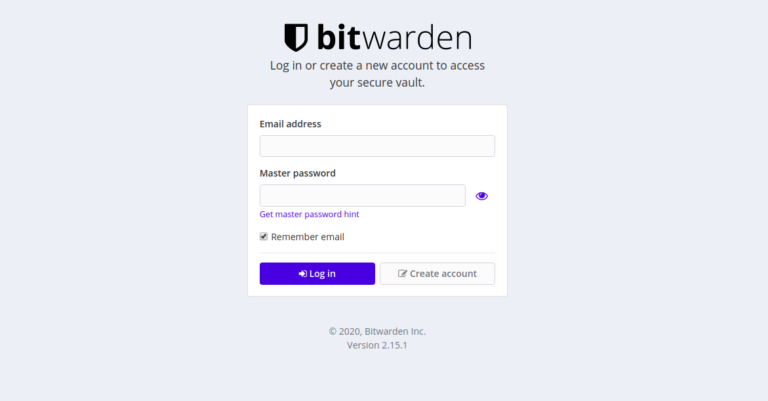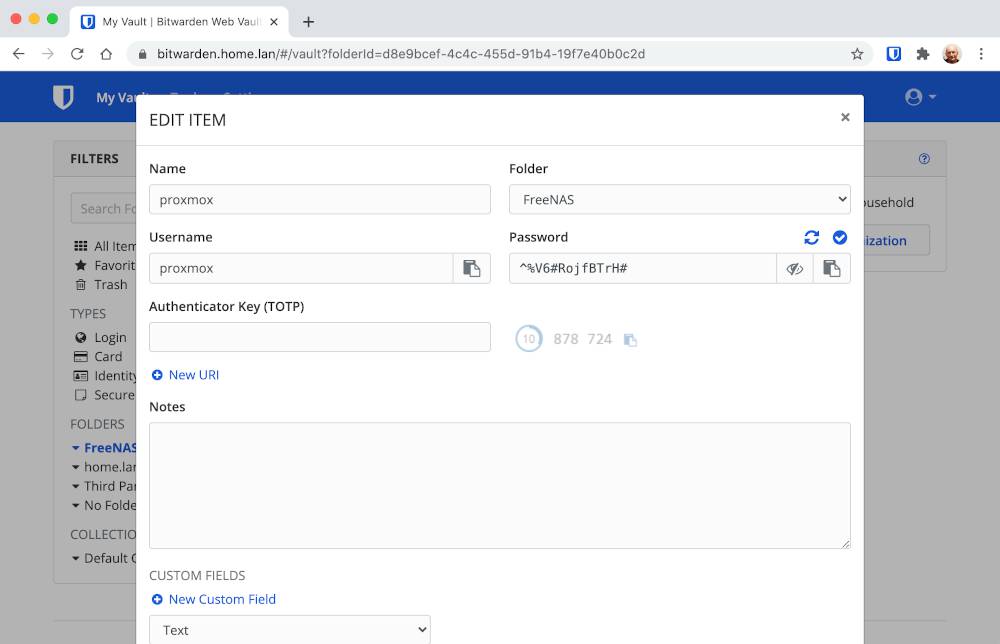

Updated my lets encrypt certificate with additional domain. Then I installed the bitwarden which seems to finish succesfull. I installed nethserver docker and added docker-composer as well. Save and restart the Let's Encrypt container.So after reading a bit about the possibility of a cloud based password client I started installing bitwarden on my nethserver. In this file paste the following, making sure you edit it to change the variables $IP and $HOST_PORT_FOR_80 appropriate to your own config. Navigate to /config/nginx/site-confs/ on your LinuxServer.io Let's Encrypt container, and create a new server. You can choose any free port for this tutorial - just remember what it is so you can configure the reverse proxy appropriately. So let's grab it from Docker Hub: docker run -d \Īs you can see I've changed port 80 on the container side to be 8343 on the host as Unraid is currently using port 80. Your own (sub)domain setup correctly and free to dedicate to bitwarden.Īlthough I tend to prefer to use containers we've produced ourselves, sometimes you have to admit that the original application author has hit the nail on the head with their own container, and that's the case here.Our letsencrypt container installed and configured with your hostname and appropriate (sub)domains.So without further ado, let's get started. It only requires a single Docker container to spin it up.However I've never been entirely comfortable with storing my password database on someone else's computer, so I decided to look into options for self-hosting it.Įnter bitwarden_rs an unofficial implementation of the Bitwarden password manager written in rust, and brings a number of advantages to the original project.

Bitwarden is an awesome open source password manager that I've been using for a while.


 0 kommentar(er)
0 kommentar(er)
